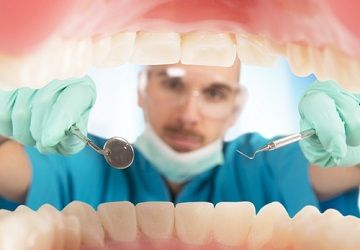New Study Supports Expanded Scope of Practice for Dental Hygienists
The study, which was published in the December edition of Health Affairs, produced results that support more autonomy for dental hygienists in terms of the care they can lawfully administer, particularly in parts of the US where access to oral health care is limited.

A new study shows that expanding the scope of practice for dental hygienists in the U.S. has improved oral health in the years 2001 and 2014.
The study, which was published in the December edition of Health Affairs, produced results that support more autonomy for dental hygienists in terms of the care they can lawfully administer, particularly in parts of the country where access to oral health care is limited.
“One current strategy to improve access to basic oral health services is to allow dental hygienists to provide preventive care in community settings, such as schools and long-term care facilities, without the immediate supervision of a dentist,” the study said, providing an example of scope-of-practice expansion. Independent application of dental sealants to permanent molars would be another beneficial scope-of-practice expansion, the study notes.
Researchers created an index in 2001 to evaluate how much autonomy dental hygienists have under the law within individual states and the District of Columbia. They then compared the scores with the number of tooth extractions in adults that were the result of decay or disease. This process was repeated in 2014 to gauge expansion of the scope of care, as well as its effectiveness.
“We hypothesized that more expansive scopes of practice for dental hygienists would be associated with better population oral health,” the study said.
A committee of dentists, hygienists, a physician, and a state legislator jointly created the index in 2001, assigning weights to each “to reflect that variable’s relative impact on the ability of a dental hygienist to provide preventative services in a community setting.” The variables were broken into 4 general categories, including regulation, supervision by practice setting, tasks permitted under varying levels of supervision, and reimbursement.
In 2001, the study says, the mean composite score was 43.5, climbing to 57.6 in 2014. The highest possible score was 100 points.
“This increase was attributable to regulatory changes in many states that reduced the direct supervision required for dental hygienists, most notably in public health settings,” the study says, adding that higher composite index scores “had a positive and significant association with having no teeth removed because of decay or disease.”
The study concludes by urging U.S. policy makers to consider how scope of practice can affect oral health when considering ways to improve access to preventive oral health care.